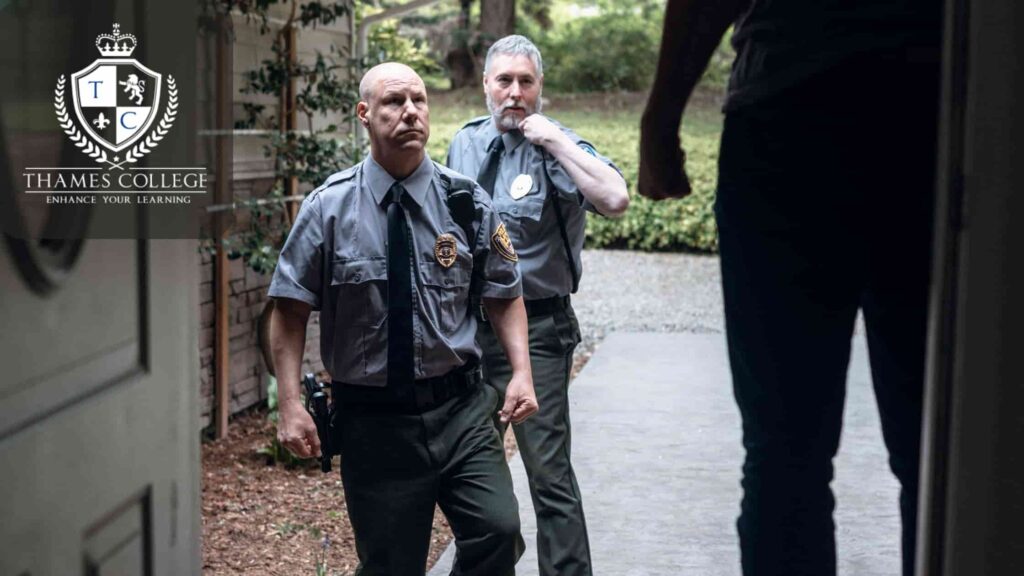
When people think of careers in the justice system, they often imagine courtroom lawyers or uniformed police officers. But there’s another vital role working behind the scenes to keep communities safe and help people turn their lives around: the Probation & Parole Officer.
These professionals sit at the intersection of justice, rehabilitation, and public safety. Whether working with someone recently released from prison or supporting individuals sentenced to community supervision, they provide the structure and support needed for a second chance.
Probation vs. Parole: What’s the Difference?
Before diving into the job itself, it’s important to understand the distinction:
- Probation is a court-ordered period of supervision in the community, often in place of a custodial sentence.
- Parole is granted after part of a prison sentence has been served, allowing a person to complete their sentence under community supervision.
In both cases, the officer’s role is to monitor, guide, and support the individual, ensuring they comply with conditions and access the help they need.
Key Responsibilities of a Probation & Parole Officer
The role is dynamic, with each day bringing new challenges. Common duties include:
- Supervising individuals on probation or parole, including home visits and regular check-ins.
- Writing detailed reports for courts or parole boards outlining progress, compliance, and risk.
- Creating rehabilitation plans tailored to each individual’s needs—this might include counselling, employment, education, or housing support.
- Assessing risk levels using formal tools to determine how likely someone is to reoffend.
- Collaborating with other services such as drug support, mental health, housing providers, and police.
- Enforcing court conditions, including reporting violations and attending hearings.
Supporting Reintegration and Public Safety
The role isn’t only about monitoring—it’s about change and reintegration. Officers work closely with clients to:
- Set achievable goals
- Encourage responsible decision-making
- Connect them with services that reduce the chances of reoffending
It’s a balancing act—officers need empathy, firmness, and a clear focus on both public safety and individual progress.
Curious how this relates to reoffending statistics? How Probation & Parole Officers Help Reduce Reoffending explains the impact in real terms.
Real Environments You Might Work In
Probation & Parole Officers in the UK may work in:
- Community rehabilitation companies
- Youth justice services
- Approved premises (hostels for high-risk individuals)
- Local councils or prisons (pre-release planning)
Interested in what that looks like on a typical day? A Day in the Life of a Probation & Parole Officer breaks it down.
Who Makes a Good Probation or Parole Officer?
It’s not for everyone. The role demands:
- Emotional resilience
- Strong decision-making skills
- Excellent communication
- Patience and structure
You’ll find more on this in Top Skills Every Probation & Parole Officer Must Have, which outlines what truly matters beyond qualifications.
Final Thought
Being a Probation & Parole Officer isn’t about watching people—it’s about walking with them as they try to change their lives. The role is essential, challenging, and—when done well—transformational for both individuals and society.
- All Courses
- QLS Endorsed Single Course701
- Management Courses317
- Mega Bundles263
- Technology Courses246
- Business Courses219
- Teaching Courses190
- Health Courses180
- Development Courses137
- Law Courses86
- Marketing Courses76
- Creative Courses73
- Counselling Courses60
- Job Guarantee Programme51
- Engineering Courses39
- Arts Courses34
- 4-in-1 bundle32
- QLS Endorsed Single Course with Free Certificate31
- Agriculture Courses22
- Science Courses21
- Regulated Courses6
- Psychology3




0 responses on "What Does a Probation & Parole Officer Actually Do?"